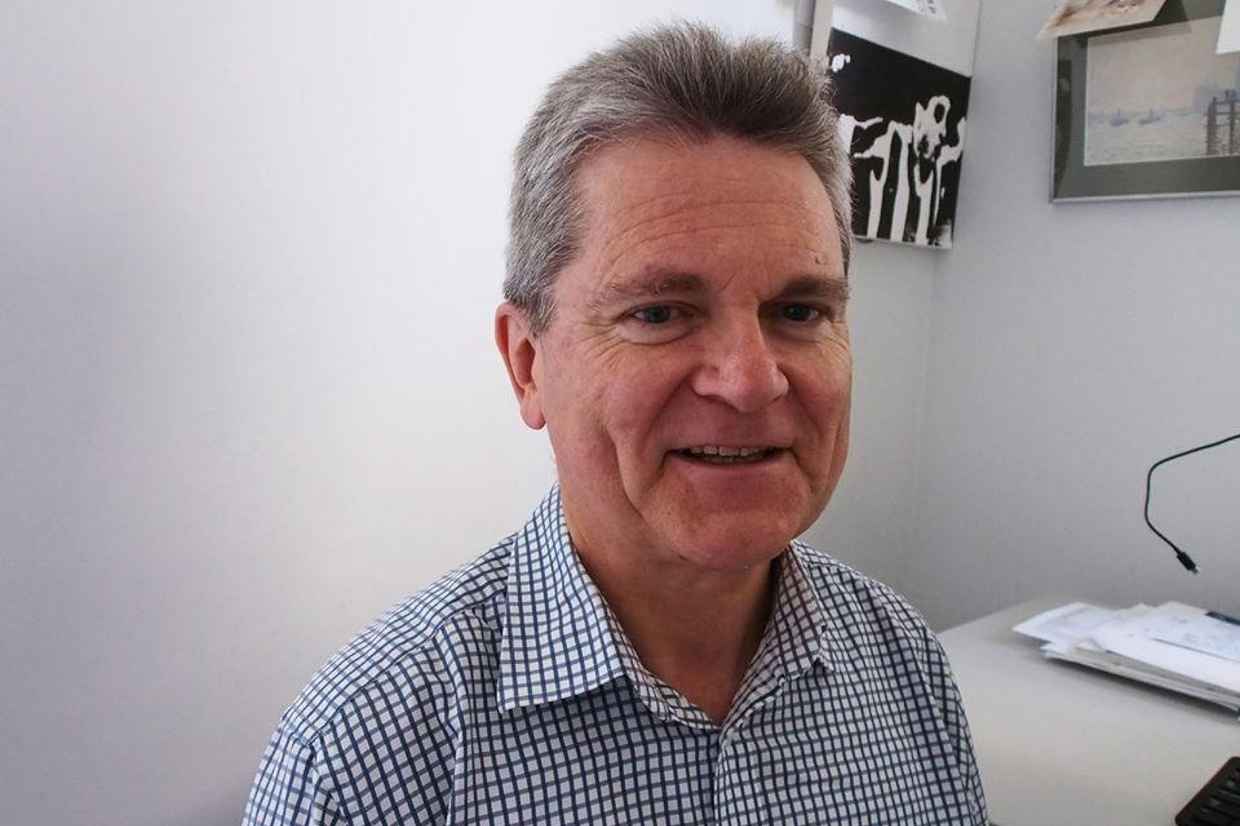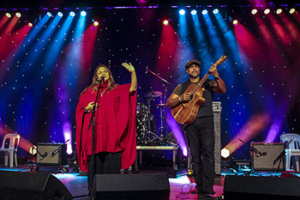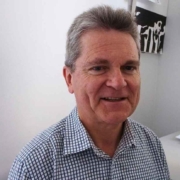Spirit, justice, and the NASH
We’ve been attending the National Folk Festival (NASH) in Canberra every year (except the Covid ones) since 2014. It’s held over the long Easter weekend and has the idealistic slogan “Five days in a perfect world”.
That might not be strange for long-time folkies like us but during most of those years we were pastors of a church, and some people were surprised (horrified?) we weren’t in church for all the Holy Week activities. How could we go off to a folk festival and not be in church?
Well, we must admit we found more spiritual nourishment in the music, dance, storytelling, and celebration at the NASH then we ever had in Holy Week church activities. And each year we’ve come away from the festival challenged by new singers we’ve discovered and their songs about the struggle for social justice around the world.
One of the things we’ve discovered over the years is that many of the artists who sing about social justice see Jesus as an example to follow even though many of them have never (or seldom) darkened the door of a traditional church. One singer we discovered this year included these lines in a song called “Enough”:
“I heard about a man in a faraway land who made respectable folks aghast
steadily gathering an entourage of fishermen, prostitutes, and outcasts.
Near as they could figure it, he was illegitimate
and say he was born in a stable.
Say he made wine out of water one time
and knocked over some banker’s tables,
but it was like daring the authorities and clergy to do their worst
and he said the first would be last and last would be first.
Don’t give like the hypocrites and make a big show of it
well they’re always gathering more
and if you want to see heaven sell your possessions
give what you got to the poor
and if you try to save your life, you’ll surely lose it.
He said the kingdom is inside you if you choose it.
He and a dozen good buddies wandering around
sleeping rough they never had a lie. They always had enough.”
Many of these artists understand that Jesus came with a message of love, compassion, and justice for the poor and hungry and they are inspired by this example of his. Our question is why do so many Christians who attend church each week not understand this?
We did attend a worship service at the NASH this Easter Sunday and the time was closed with the singing of Amazing Grace. This is a song that we heard played several times as we walked throughout the festival grounds. This time it was led by Gina Williams, an Aboriginal singer from WA. She explained that it was hard to translate the song into her native language because they had no words for “amazing” and “grace”. And the concept of justice they had was a retributive one.
So, her attempt to sing the first verse of the song translates as this in English:
“Big beautiful heart
Sweet listening
This weak one you keep
Before I (was) lost, now I am here
Blind, now I see”
This is our prayer for so many of our Christian brothers and sisters who only see Jesus as a sacrifice to an angry God. Jesus is so much more and many outside the church see this.
The Basin Track Aboriginal Site Tour (with Guringai Aboriginal Cultural Tours – Sydney)
Members of AAANZ, The Northern Beaches Table-gathers and The Avalon Baptists joined together on October 21, 2023 for The Basin Track Aboriginal Site Tour in the Ku-ring-ai National Park at West Head. The weather was absolutely perfect and our tour guide and leader was Laurie Bimson who gave us a wealth of information on our First Nation’s Peoples and the cultures in and around the local area. It was also a time to reflect as it was just a week after the “No” result in the Referendum.
Link for the tour information : Basin Track Tour – Guringai Tours Reservations (https://guringaitoursau.rezdy.com/460972/basin-track-tour)
Here are some pics of the day of the sixteen of us who took part:



The Basin Track Aboriginal Site Tour
What: we are hosting a tour of an indigenous site in northern Sydney as a way for us to engage with issues of indigenous justice. The tour will be led by Guringai Aboriginal Cultural Tours
When: Sat 21 October 2023, 10am-1:30pm
Where: Kuringai Chase National Park, 45 min drive north of Sydney CBD, (West Head).
Details:
- Meet at the Resolute Picnic Area (RPA) just before the Lookout (which is presently closed for a major upgrade). This is 13 kms (North) past the NPWS toll booth along the West Head Rd.
- We are at the picnic area till after lunch. We start with a talk about artefacts then boomerang throwing then Red Hands Cave
- Bring your own lunch
- After Lunch then it’s a 3.5 Kilometre drive back (South) on the West Head. Road to the start of the Basin track. We walk in, flat walk 400m each way, (duration – about 1 hr).
- Then Lite Afternoon snack and closing prayer hosted by AAANZ on a clearing on the Basin Track 50 metres in from the road
Costs: Depends on how many people join us. Between $45 and $65.
- Costs do not include the National Parks & Wildlife Service (NPWS) toll to be paid on entering the Park at the Southern end of West Head Road
RSVP: Please email brucedavies122@gmail.com as soon as possible so we can start making estimates of numbers
Theological Reasons to Support First Nations People Before, During, and After the Referendum
Press release circulated on 22 Sep 2023. The full statement is at the bottom of this page, and can be downloaded from here.
The Executive Committee of the Anabaptist Association of Australia and New Zealand (AAANZ) calls on the Australian church to support the aspirations of Aboriginal and Torres Strait Islander peoples. In a detailed position statement from an Anabaptist point of view, they give clear reasons for Christians to support the requests in The Uluru Statement from the Heart, which include “a First Nations Voice enshrined in the Constitution”.
The AAANZ emphasises that Jesus is the centre of our faith, community is the centre of our life, and reconciliation is the centre of our work. Each of those themes inspire followers of Jesus to seek shalom: that is, a state of true peace, justice, wholeness, and rightness. In the current Australian context, this longing for shalom leads to five calls to action:
- We commit to bearing witness, by the actions within our own communities, to a society in which First Nations peoples are fully included and honoured. We call on the churches of Australia and the broader Australian community to do likewise.
- We commit to listening to First Nations leaders, expecting to find wisdom there that helps us to reconnect to each other, to God, and to this land. We call on the churches of Australia and the broader Australian community to do likewise.
- We commit to speaking boldly for justice in relation to First Nations peoples. We call on the churches of Australia and the broader Australian community to do likewise.
- The majority of AAANZ supporters commit to supporting the Referendum and to doing what we can to make the Constitutional change succeed. We call on the churches of Australia and the broader Australian community to do likewise.
- We commit to continued solidarity after the Referendum with First Nations peoples in general and personal protection and care for those First Nations people we know. We call on the churches of Australia and the broader Australian community to do likewise.
The AAANZ President, Matthew Clarke, noted that this is a significant step for the Association given that Anabaptists often stand back from direct political engagement. “We believe this statement adds theological insights to the current conversation and will help Christians understand the importance of demonstrating their faith in the way they relate to their indigenous neighbours.”
Book Review: Jesus vs Evangelicals
Grace Koch
Campbell, Constantine R. 2023. Jesus vs Evangelicals: A Biblical Critique of a Wayward Movement. Grand Rapids, Michigan: Zondervan Reflective.
If you want a challenge to your personal walk with God, read this book. The introductory paragraphs alone will shock you, especially if you are a citizen of the USA.
Con Campbell is a theologian, Biblical scholar, author, musician, and former pastor who is professor and associate research director at Sydney College of Divinity and does sessional tutoring at the Canberra School of Music. When his busy schedule allows, he and his wife, Niah, attend the Anglican Church of St. John the Baptist. It was there that I met them, and when I told him of my interest in his book, he graciously gave me a copy. As I had shared some of my own journey as an evangelical with him, he said that he hoped I would still speak to him after I finished it.
In the acknowledgements, he admits that this was a risky book to write as it questions and confronts how evangelicalism has developed both within the USA and, to a lesser extent, in Australia. Although the book emphasises the problems within the evangelical movement, Christians from all backgrounds will benefit from engaging with Campbell’s wide-ranging and scholarly approach that combines solid Biblical evidence with a broad understanding of contemporary developments within both the USA and Australia. The section on God and country fits in well with last month’s Anabaptist discussion online about Christian nationalism.
Campbell writes from his own experience as a pastor and teacher, having served in several churches within the USA especially in the greater Chicago area and the Sydney Anglican dioceses. Several of the points he makes stood out to me.
1) After a brief examination of different descriptions of evangelicalism, he quotes historian Mark Noll’s three general classifications of evangelicals: theological or those who are evangelical by conviction, cultural or those who adopt the way of life and practices of various church communities, and political or those who share an accepted set of political commitments. Although each category may blur into the next, the cultural and political emphases have taken an upper hand for much that is happening in the USA.
2) The section on exclusion zones, along with the one on bad judgement, compares how Jesus ministered to the outsiders of society with our own tendencies towards exclusion of people who do not follow our own sets of rules. We can use these sections in self-examination.
3) Leading on from that section comes a scholarly description of what is happening amongst the megachurches and the resulting tribalism that emerges. We can see some of these developments in Australia as well, with divisiveness along church lines. He explores how the concepts of premillennialism have caused great divisions, especially in the USA.
4) For me, the most moving part of the book was on ‘acceptable sins.’ He says that the very sins Jesus finds most repugnant are the ones evangelicals tend to excuse, such as pride, arrogance, hypocrisy, judgmentalism, etc. He centres on pride and judgementalism, speaking from his own experience in describing how they can affect us, especially those who suffer marriage breakdowns. He quotes Matthew 23:23-24, which describes straining out the gnat but swallowing a camel. This section inspired me to do quite a bit of soul-searching.
Campbell ends with a chapter on saving faith, which takes a solidly biblical approach to how evangelicals can ensure that they do not fall into the various fallacies that the movement has generated. Near the end he suggests three possibilities for the future of the term ‘evangelical’; keeping it, redefining it, or getting rid of it altogether. He ends with many references to hope, showing how Jesus can transform our viewpoints, our desire for a closer walk with God, and our love for one another. Such a book is long overdue.
[1] Noll M. 2019 “Introduction: One Word but Three Crises” in Evangelicals: Who They Have Been, Are Now, and Could Be, ed. Mark A. Noll, David W. Bebbington, and George M. Marsden (Grand Rapids: Eerdmans, 2019), Kindle loc. 594.
Ted Sherwood to lead the next First Saturday discussion

What do the three Anabaptist centralities – Jesus, community, and reconciliation – have to do with how we think about our finances? Ted Sherwood has given some thought to this subject and is going to lead us through an introductory discussion of this topic.
Our discussion will be on Saturday, 6 May 2023, live-streamed via Zoom between 4:00 and 5:00pm. Join earlier to mingle with other participants.
Contact aaanz.info@gmail.com for the Zoom link.
Drew J. Strait to lead the next First Saturday discussion
Dr Drew J. Strait is Assistant Professor of New Testament and Christian Origins at the Anabaptist Mennonite Biblical Seminary (AMBS) in the USA. We will be discussing his work on “Christian Nationalism”. We will view a 30–minute video intended for use in small group study to “break silence” in your community. Later this year Drew is leading a short course online called Resisting Christian Nationalism with the Gospel of Peace with this video as an introduction to the course.
Our discussion will be on Saturday, 4 March 2023, live-streamed via Zoom between 4:00 and 5:00pm.
Contact aaanz.info@gmail.com for the Zoom link.
AAANZ AGM 2022
The AGM will be held via Zoom on the evening of Thursday 3 November, starting at 7:00pm.
If you plan to join us, please email aaanz.info@gmail.com for the Zoom link.
If you are not a registered member and would like to be part of the AAANZ, please fill out the membership request form before the meeting.
Doug Hynd to lead the next First Saturday discussion

Dr Douglas Hynd is Adjunct Research Fellow, Australian Centre for Christianity and Culture. The post-Christendom era in the English-speaking world has seen a significant reduction in access to political power by the churches, a slow loss of their social and cultural influence, and a shredding of their moral standing from abuse scandals and other public failings.
Doug’s new book Community Engagement after Christendom directly addresses these challenges, proposing a different approach to the relationship between church and society.
On Saturday, 1 October 2022, Doug will be interviewed by Jim Longley about that book. The discussion will be live-streamed between 4:00 and 5:00pm.
This will be in conjunction with a gathering of AAANZ members and supporters in Canberra.
Contact aaanz.info@gmail.com for the Zoom link.
Doug’s book Community Engagement After Christendom has been published by Wipf and Stock.


